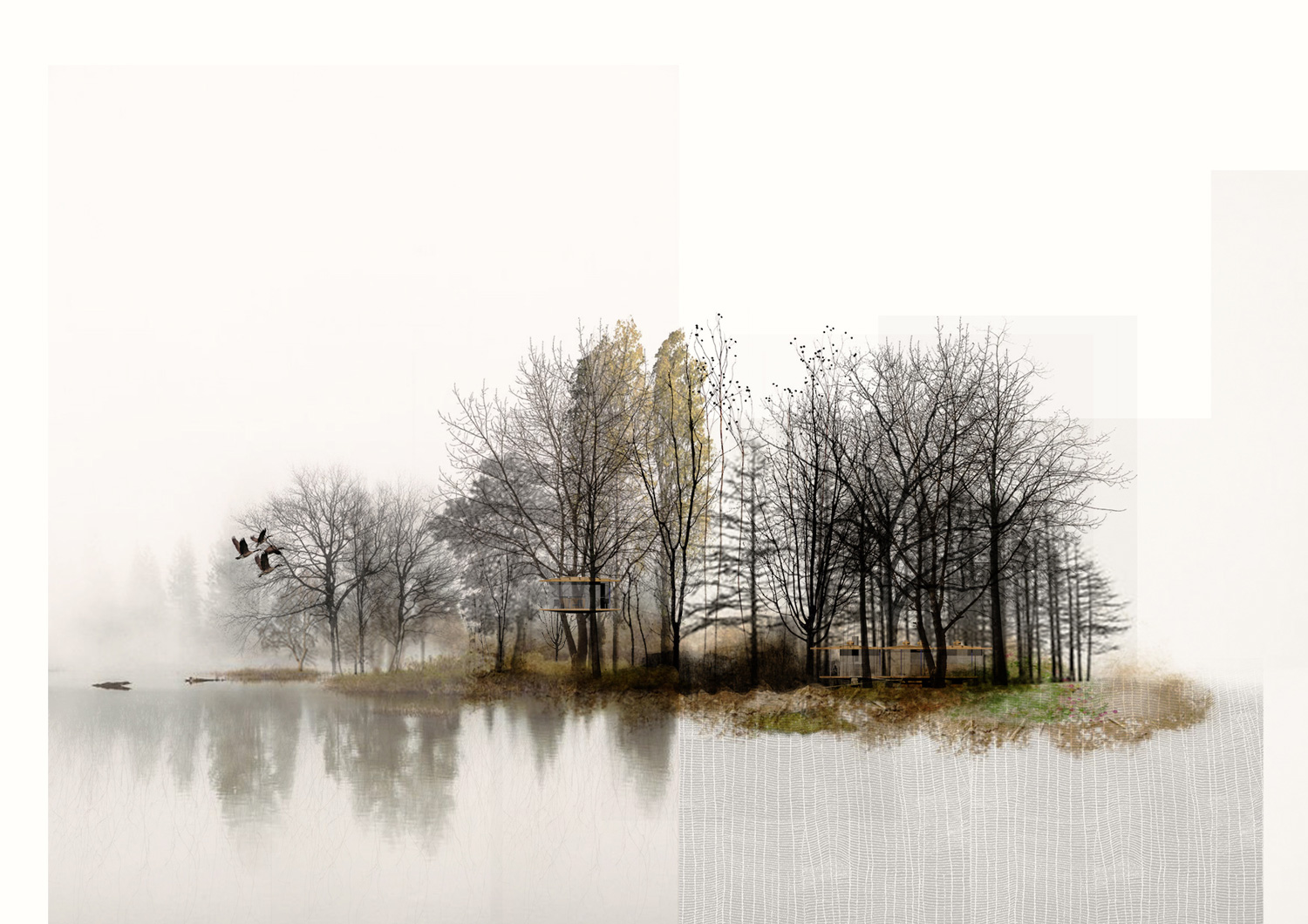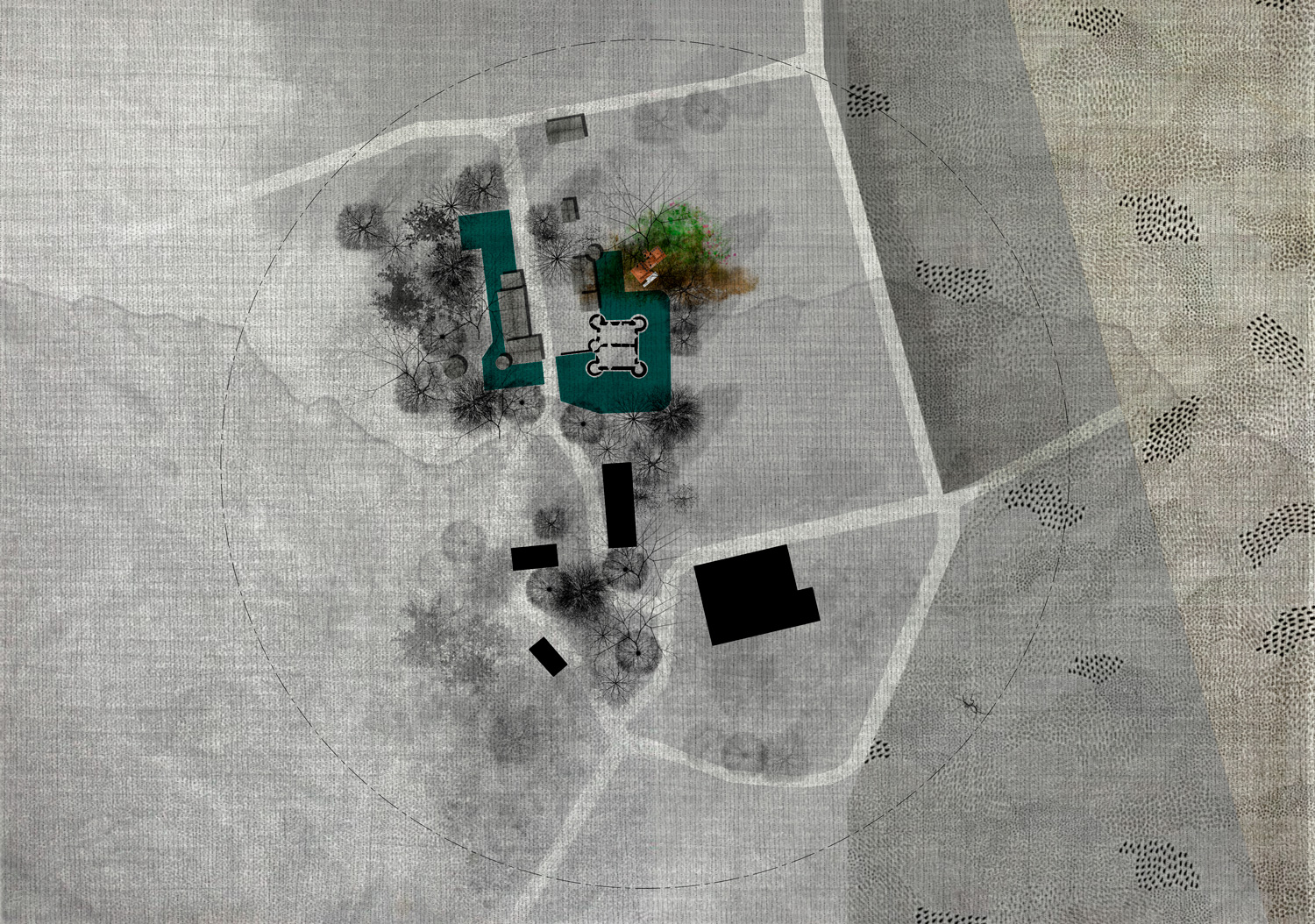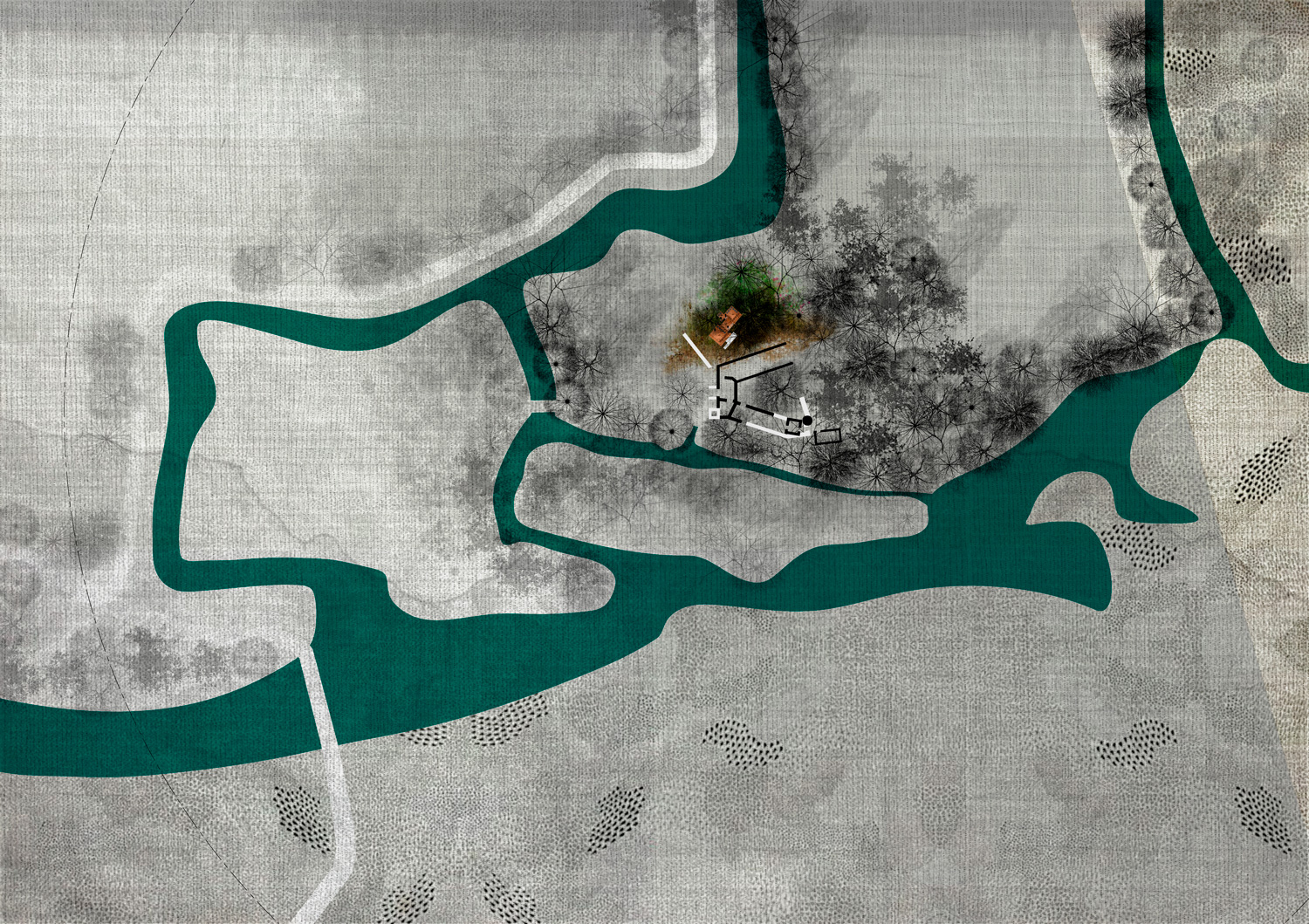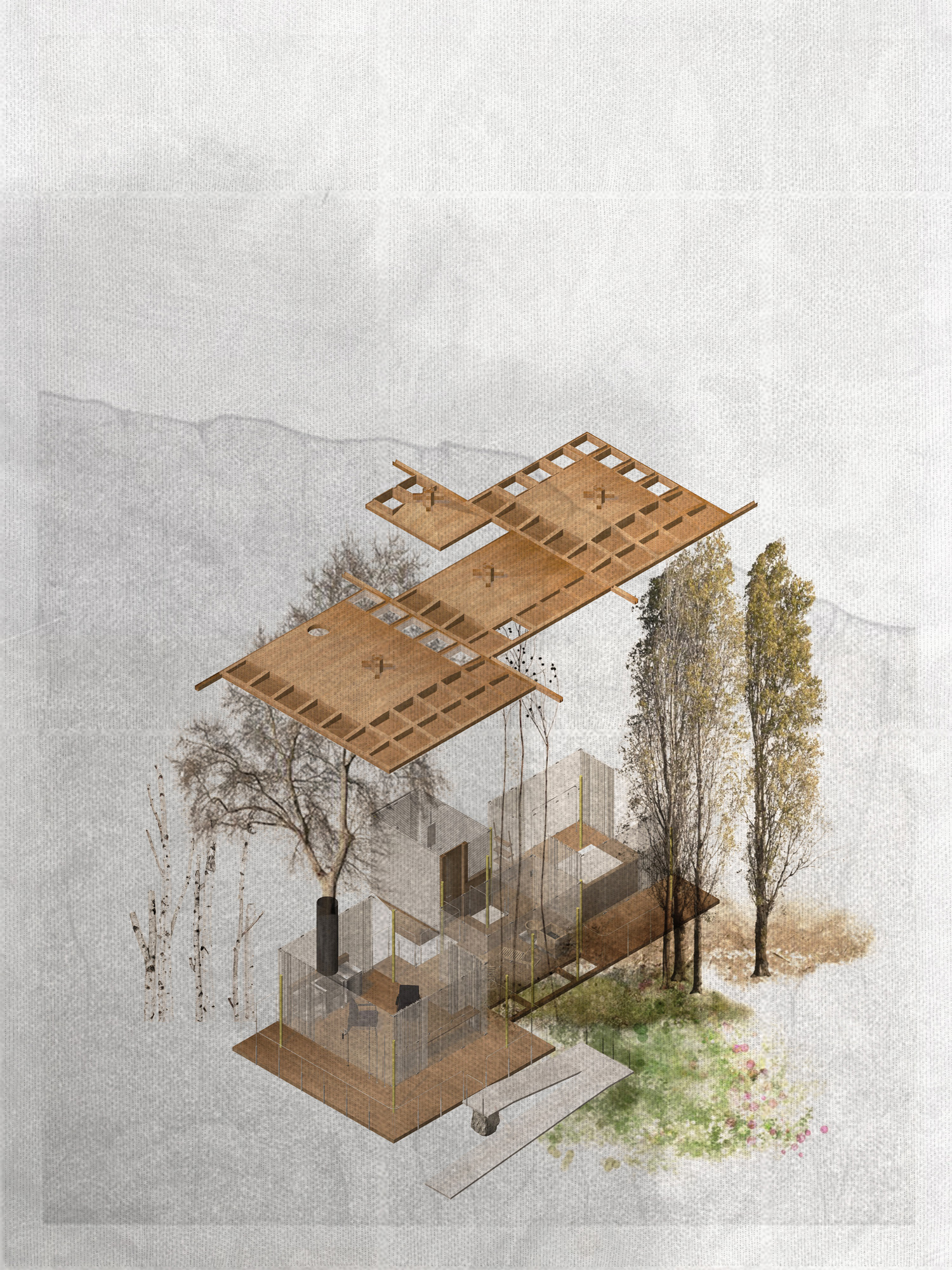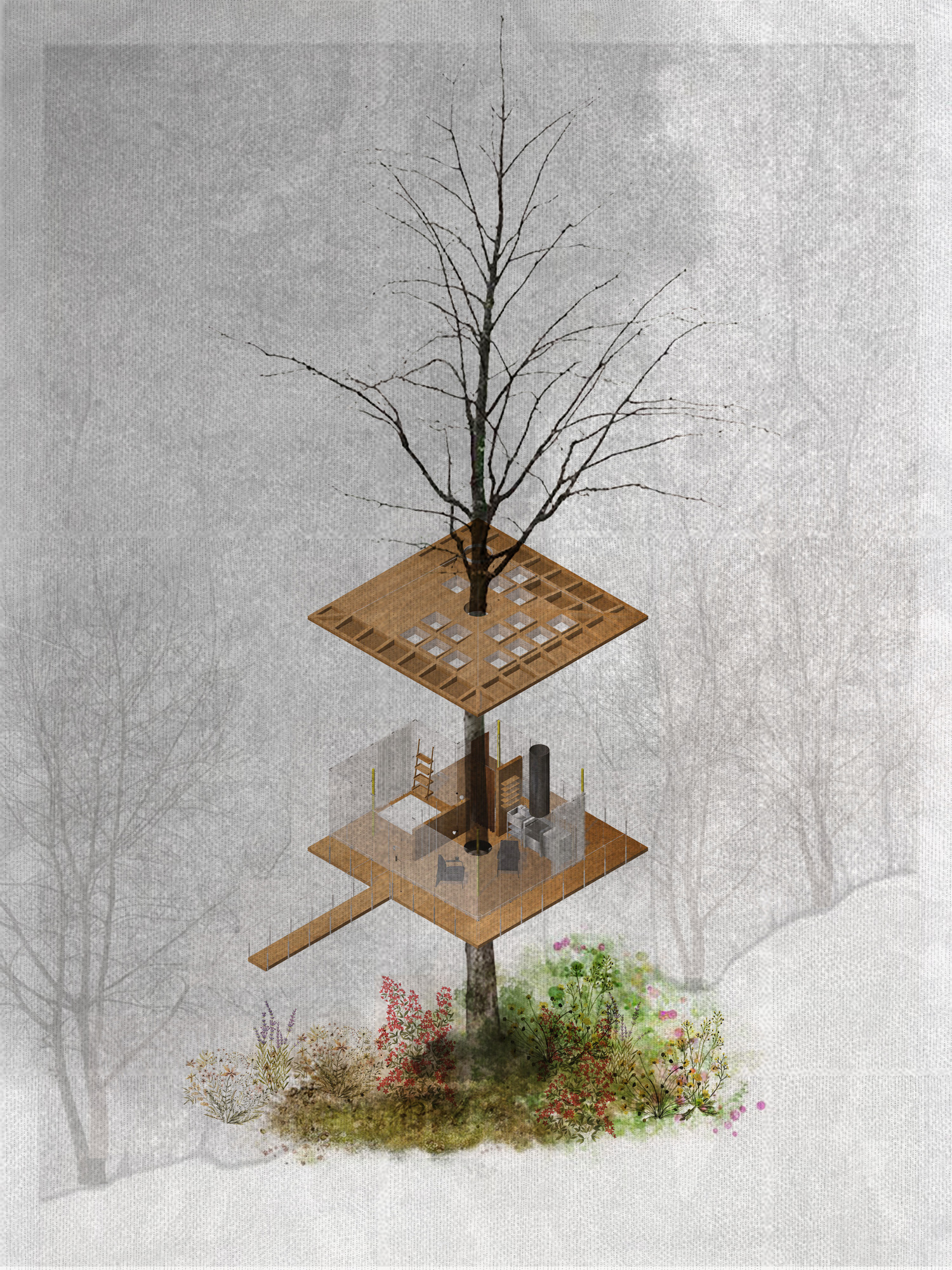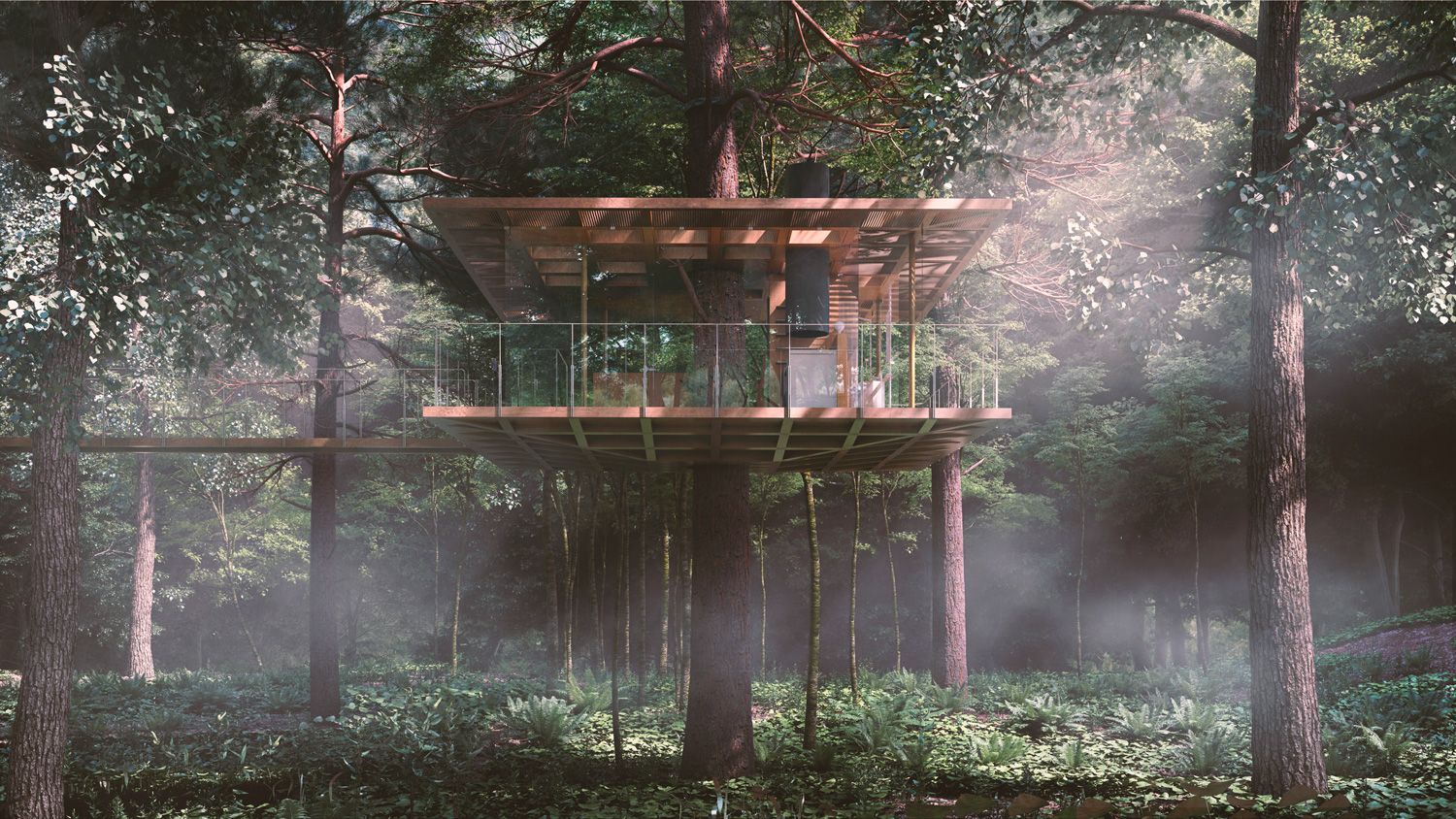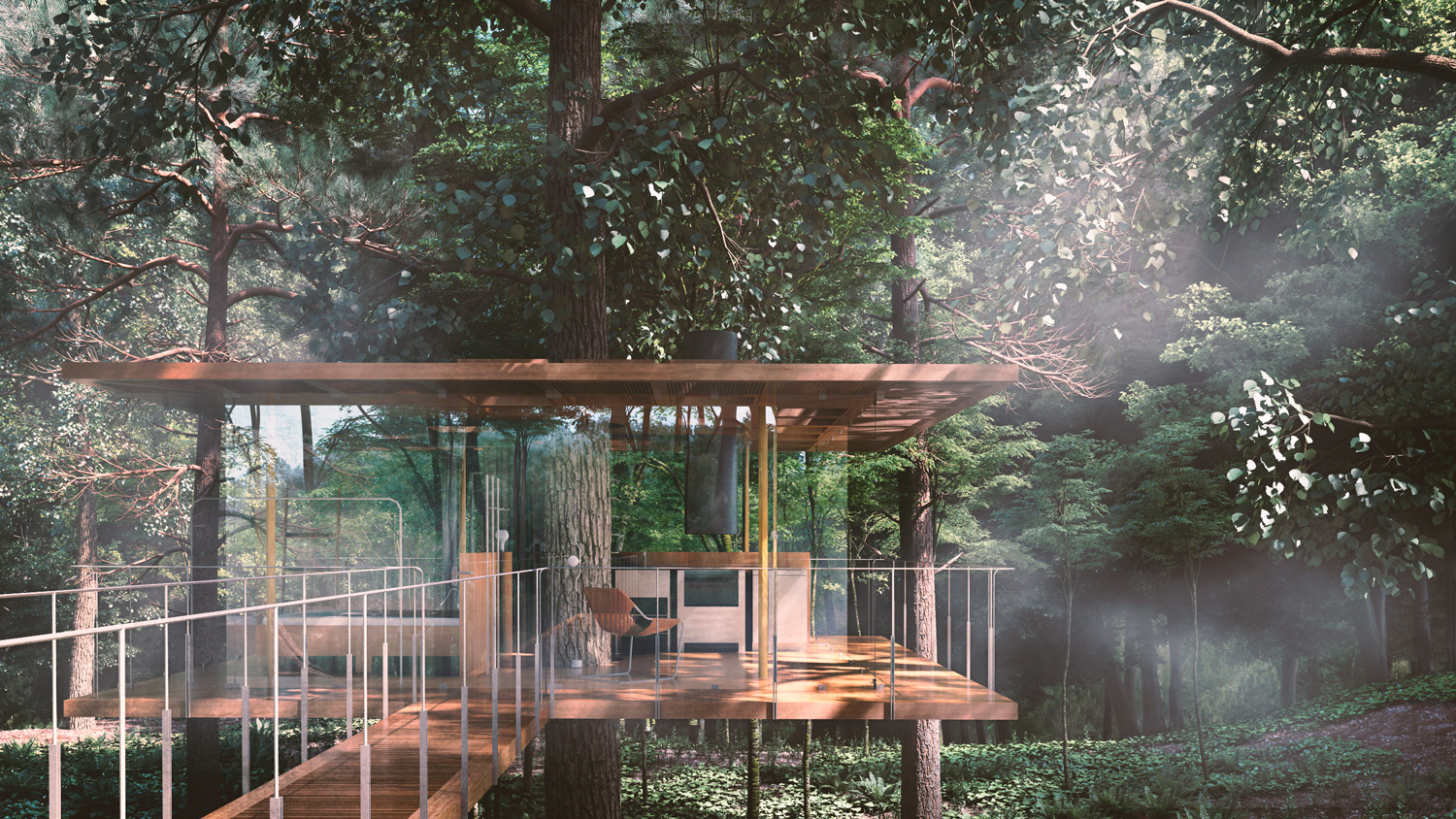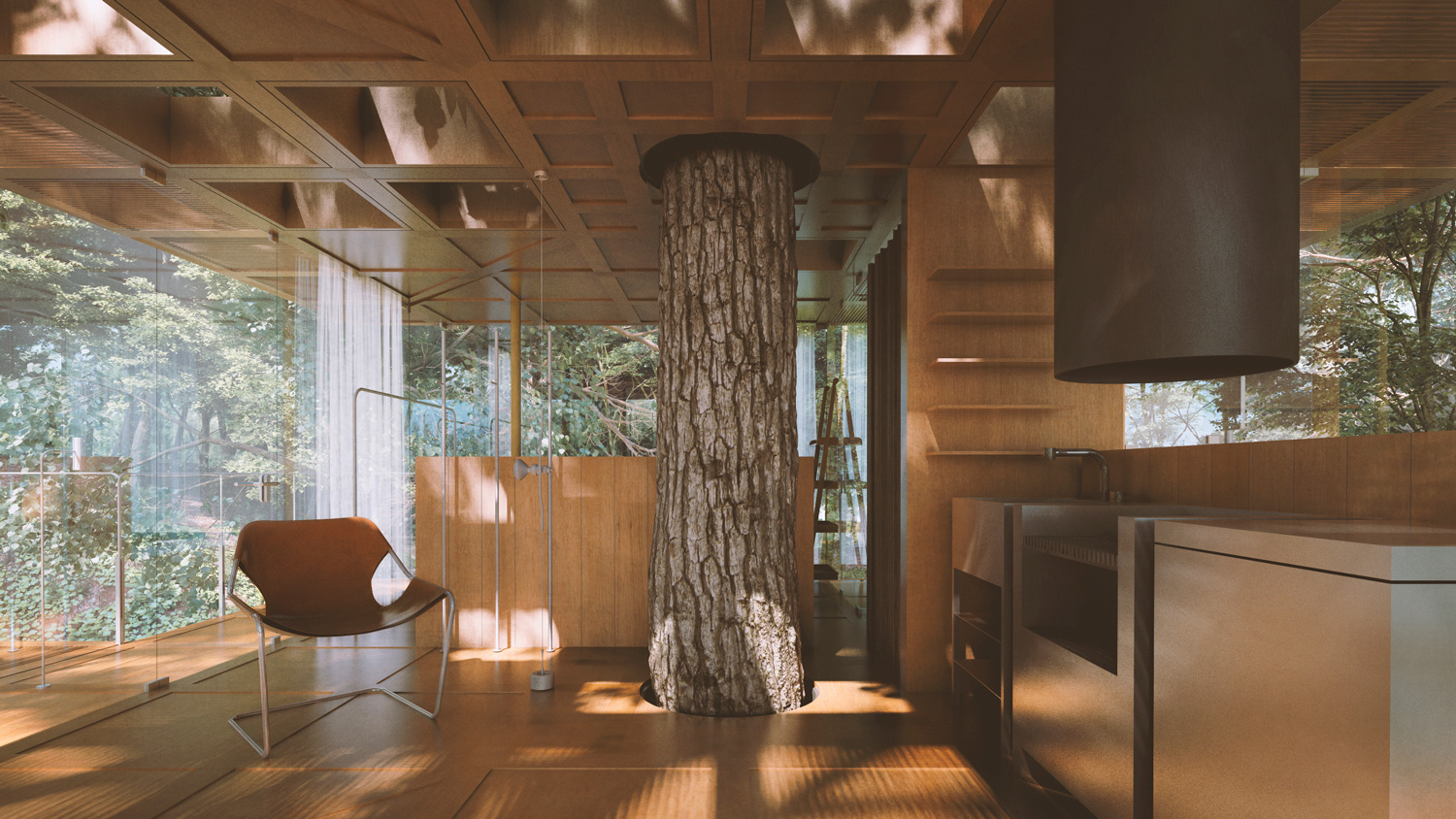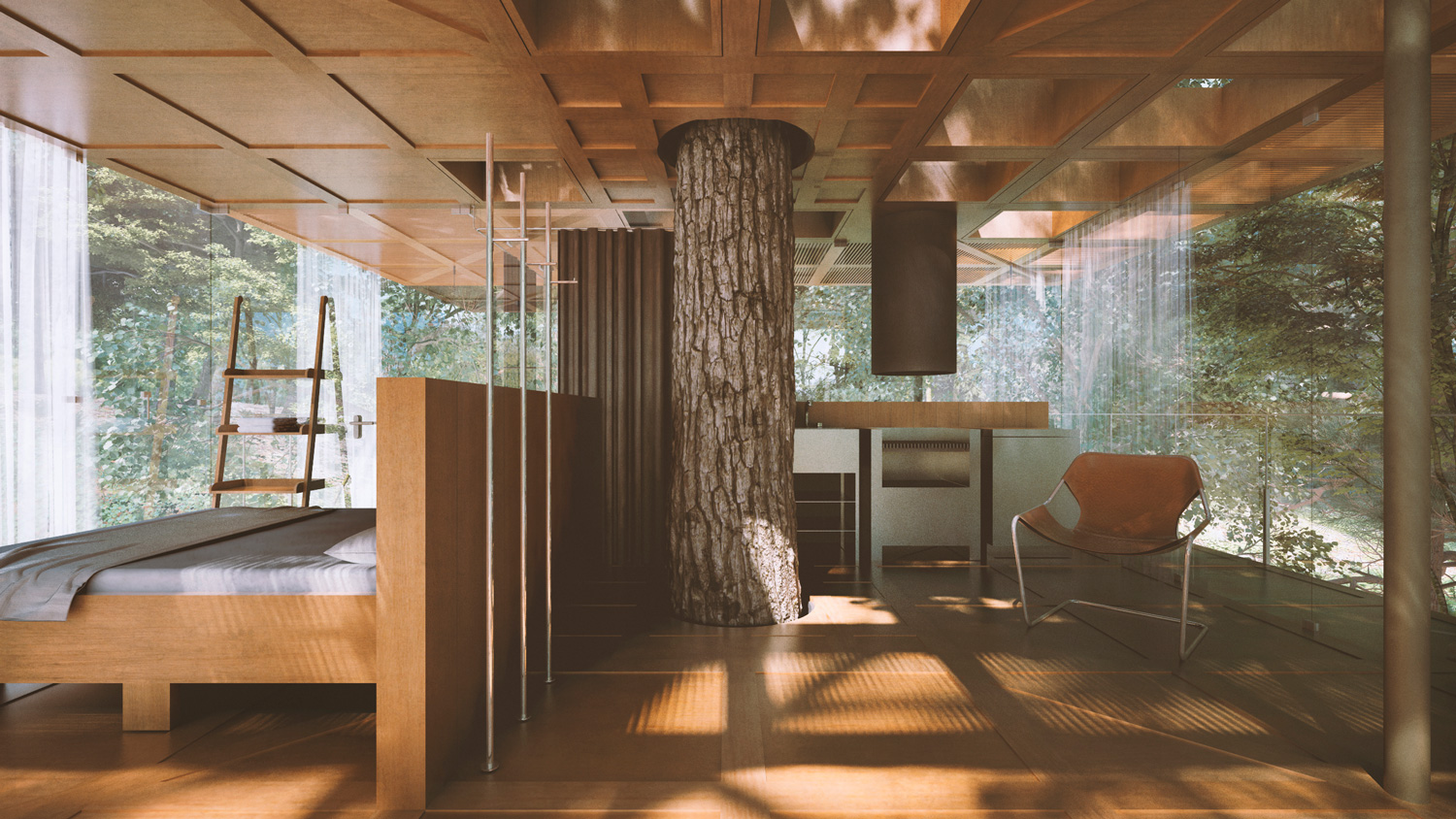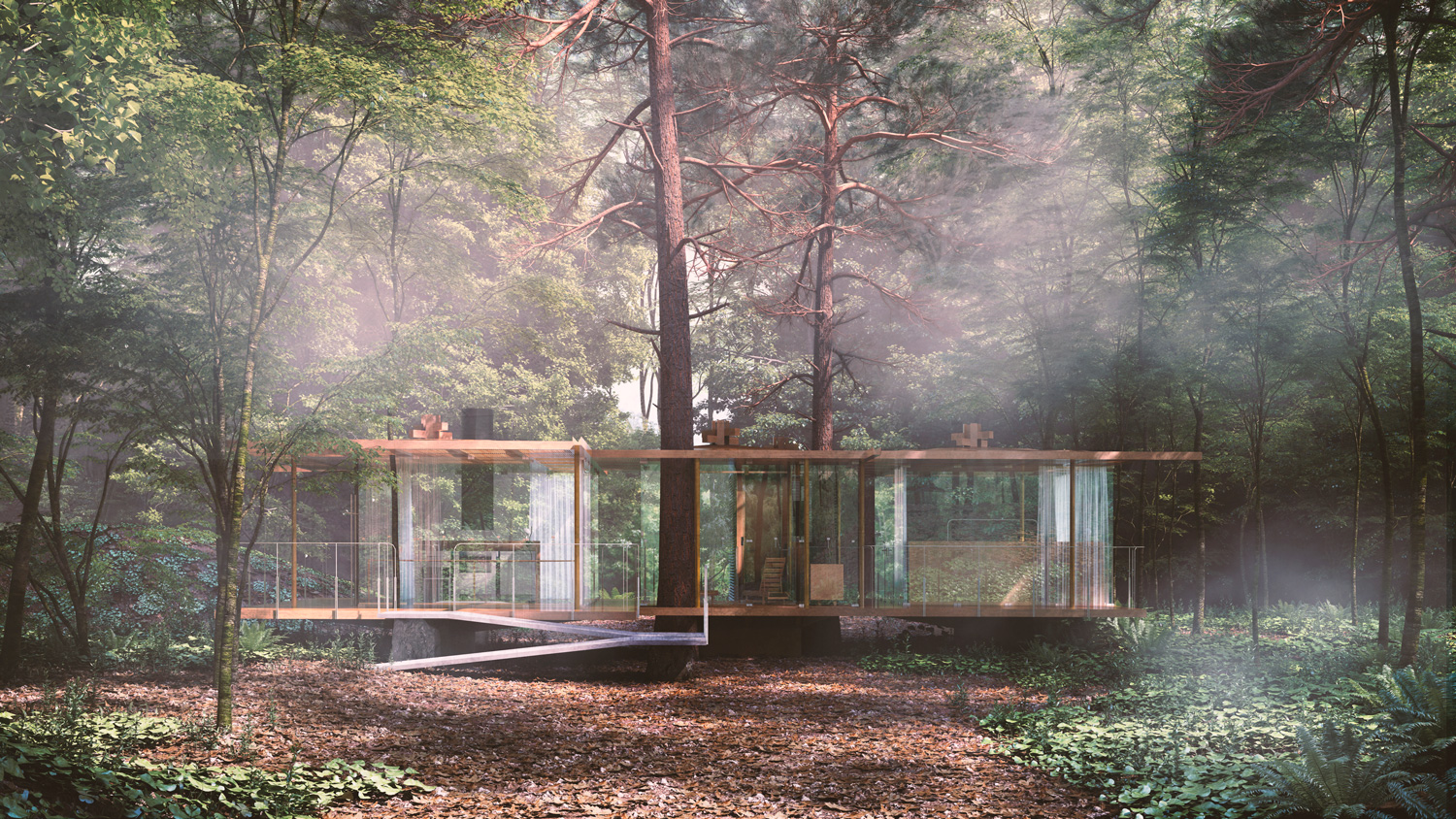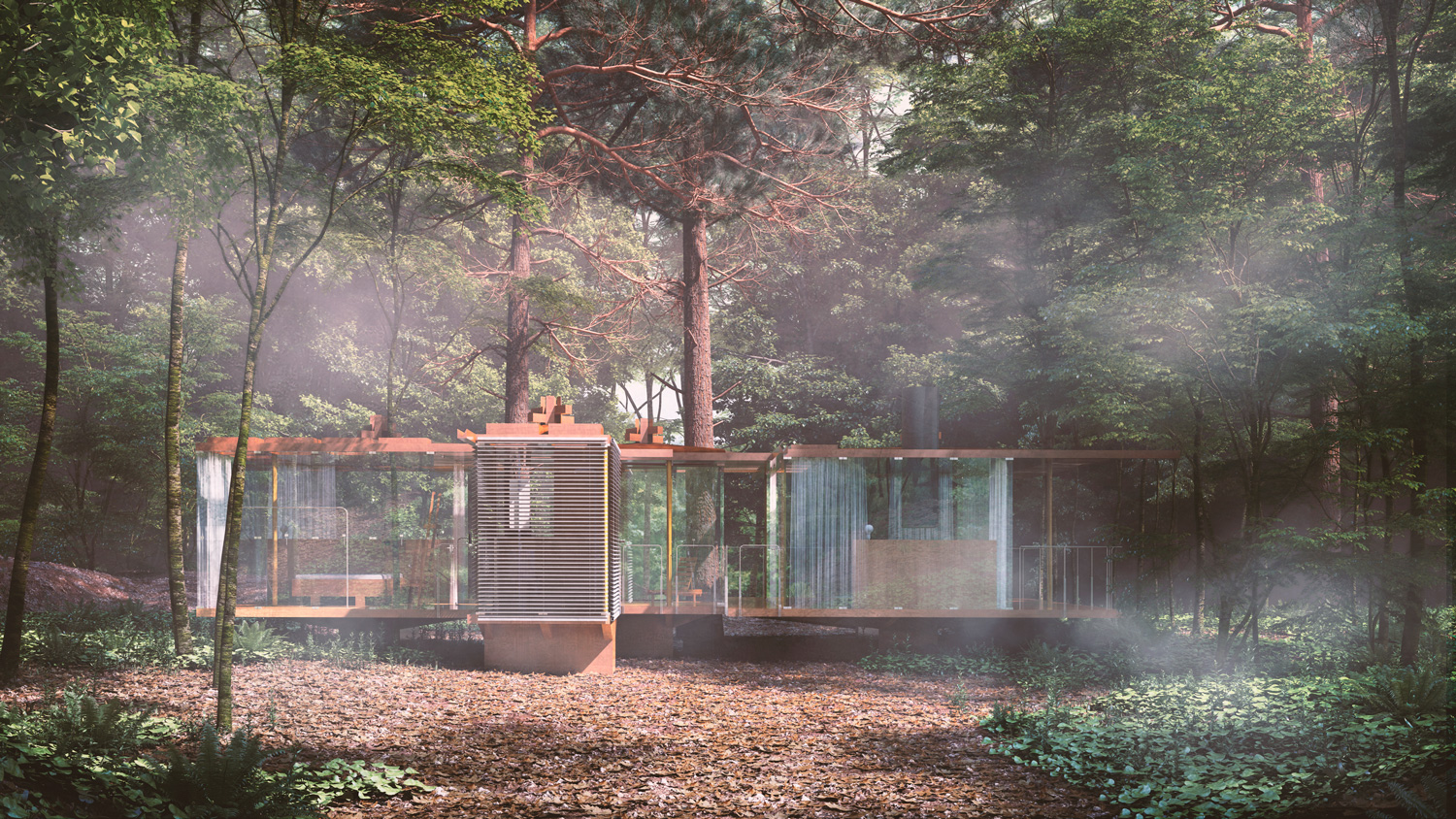2720-BUN-FR-2020
Client: Young Architects Competitions
Status: Competition (2020)
Location: Vibrac, France
Climate: Oceanic / maritime, Temperate
Materials: Glass, Wood
Environment: Forest
Visualizer: Studio
Scale: 85 ㎡ Extrasmall
Types: Cabin, Microarchitecture
The proposed project is a competition entry for the design of two tree house modules in the area of the French castles of Vibrac, Mothe Chandeniers and Ebaupinay organized by the “Young Architects Competitions”.
Nowadays we often find ourselves thinking what it will mean living within nature.
Trying to escape the overcrowding, speed and noise of the cities, as architects we often relate our thoughts to a platonic retreat, located in a context that is systematically different to the urban context we live in. We subconsciously mirror our day-to-day reality.
Albeit nature offers us endless opportunities and freedom, designing architecture within nature and having deeply understanding of the relationship between the two has always been challenging. Canonic elements of architecture don’t make us relevant here; ephemeral yet untouchable conditions are driving forces instead.
Once we metabolized the poetical aspect of living with nature and the childhood dreams of living on a tree, the design process focuses on how the intervention states itself, how it relates to the context and how it would deal with its acceptance later on. Moreover, it is questioning what kind of experience and emotional connection with nature the intervention has to offer.
Our aim was to put forward an architectural proposal that treasures the core values around nature and generates spaces that celebrate it. We believe in aging as a form of beauty.
Like nature, the design explores concepts of both simplicity and complexity through the idea of a living process that age with and within, rather than simply being a final product.
The design of the two tree house modules revolves on the construction of spatial representations of the flow of human experiences through appropriating natural and raw materials such as wood and glass. Wood has an effortless way of expressing its age and history alongside the story of the human use and the climate interference, while frameless glass has been selected to allow the user’s experience to penetrate the surface and providing a broad sensory and emotional experience with the surrounding.
The tree house module structure has been designed using interlocked wooden beams that create a platform based on a 750×750 modules. The same platform will be used for both, slab and ceiling. The voids that the grid generates will be filled according to the program trying to maintain the architecture as much lighter as possible. The experiential journey begins on a connection bridge that leads to an open plan with no obstructions of any sort.
Wrapped by a continuous frameless glass perimeter, it allows for maximum transparency and a consequential blending with the surrounding landscape. Lightweight partitions and furniture complete the space, generating virtual transitions and thresholds. Small outdoor terrace on the perimeter grants an extension of the interior. Episodic skylights open the view to the crow shyness while at the same time allow natural light filtered by the leaves to come through.
The module between the trees follows the same logic, making sure the two have a clear and identical design grammar, we maintained the basic module considering construction efficiency and duplicability. Every room responds to a function and generates a malleable composition able to adapt to a multiple site conditions. Rooms are connected through an outdoor covered walkway. While the living and sleeping areas are located opposite of each other, the services, like bathroom and sauna are working as the connectors.
While rooms are physically separated to one another, fully glazed perimeters allow for constant eye contact between them and for the landscape to be fully experienced within each space.
